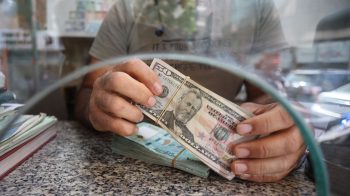Jim Paulson, chief investment officer at Wells Capital Management, is consistently one of the more thoughtful commentators among Wall Street money managers. His latest newsletter makes a number of intriguing points that are worth thinking about as gloom envelopes the markets.
First, he thinks the current subprime crisis is a mile deep but only an inch wide. He notes that housing and automobilies, the two collapsing sectors of the economy, account for only 9% of gross domestic product. The remaining 91% is relatively healthy–especially exports.
He also believes that a “new paradigm” is emerging. The basic idea is that the too-indebted consumer will fade as the key factor driving economic growth and that exports will take their place. “Chronic international trade worsened slowly but steadily worsened U.S. household balance sheets. In a similar fashion, chronic and steady U.S. trade improvements could slowly improve savings and lower debt burdens ‘without’ necessarily collapsing economic growth,” he writes. Indeed, during the last year, U.S. net exports have added almost 1% to U.S. GDP growth.
Last, Paulson doesn’t see the crisis on Wall Street turning into an economic disaster on Main Street:
Although Wall Street appears increasingly “VIXed” by volatile financial markets, most of Main Street, while nervous, remains OK! If this crisis has morphed into primarily a Wall Street crisis, its ultimate economic outcome should prove far better than feared. Both the 1987 stock market crash and the 1994 Orange County crisis were predominantly Wall Street crises. In both cases, even though fears were pronounced, the resulting economic fallout was minimal. In 1998, economic growth remained very strong despite the shocking stock market collapse of 1987! And in 1995, despite a Wall Street derivative crisis in 1994, annual real GDP growth never weakened much beyond the current growth rate during the last year. The contemporary crisis will soon need to progress beyond housing and Wall Street, or similar to past Wall Street panics, it too will fade.
Is he right? I don’t know, but his ideas are intriguing. I do think that the consumer debt boom of the past quarter century will slow going forward. The cover story by Mike Mandel in the latest issue of Business Week makes a convincing case that a battered banking system will no longer feed the consumer’s insatiable appetite for debt. Here’s the key idea:
It’s been a glorious run for the consumer. In the past 25 years, Americans have kept shopping through good times and bad. In every quarter except one since 1981, consumer spending rose over the previous year, adjusted for inflation. The exception was the first quarter of 1991, and even then the decrease was a mild 0.4% dip.
The main fuel for the spending was easy access to credit. Banks and other financial institutions were willing to lend households ever increasing amounts of money. Any particular individual might default, but in the aggregate, loans to consumers were viewed as low-risk and profitable.
The subprime crisis, however, marks the beginning of the end for the long consumer borrow-and-buy boom. The financial sector, wrestling with hundreds of billions in losses, can no longer treat consumers as a safe bet. Already, standards for real estate lending have been raised, including those for jumbo mortgages for high-end houses. Credit cards are still widely available, but it may only be a matter of time before issuers get tougher.
What comes next could be scary–the largest pullback in consumer spending in decades, perhaps as much as $200 billion to $300 billion, or 2%-3% of personal income. Reduced access to credit will combine with falling real estate values to hit poor and rich alike.
Will trade replace the consumer? If the dollar’s decline doesn’t turn into a rout–and that is a big “if”–there is a good chance that U.S. multinational corporations and export-savvy businesses will pull the economy out of its funk.
There’s a lot happening in the world. Through it all, Marketplace is here for you.
You rely on Marketplace to break down the world’s events and tell you how it affects you in a fact-based, approachable way. We rely on your financial support to keep making that possible.
Your donation today powers the independent journalism that you rely on. For just $5/month, you can help sustain Marketplace so we can keep reporting on the things that matter to you.


















